How Do Mobile Medical Vehicles Support Rural Healthcare Access
Mobile health clinics are incredibly important for filling the gaps in the healthcare infrastructure. Mobile clinics are especially beneficial for...
3 min read
Craftsmen Industries Sep 14, 2021 6:20:00 AM
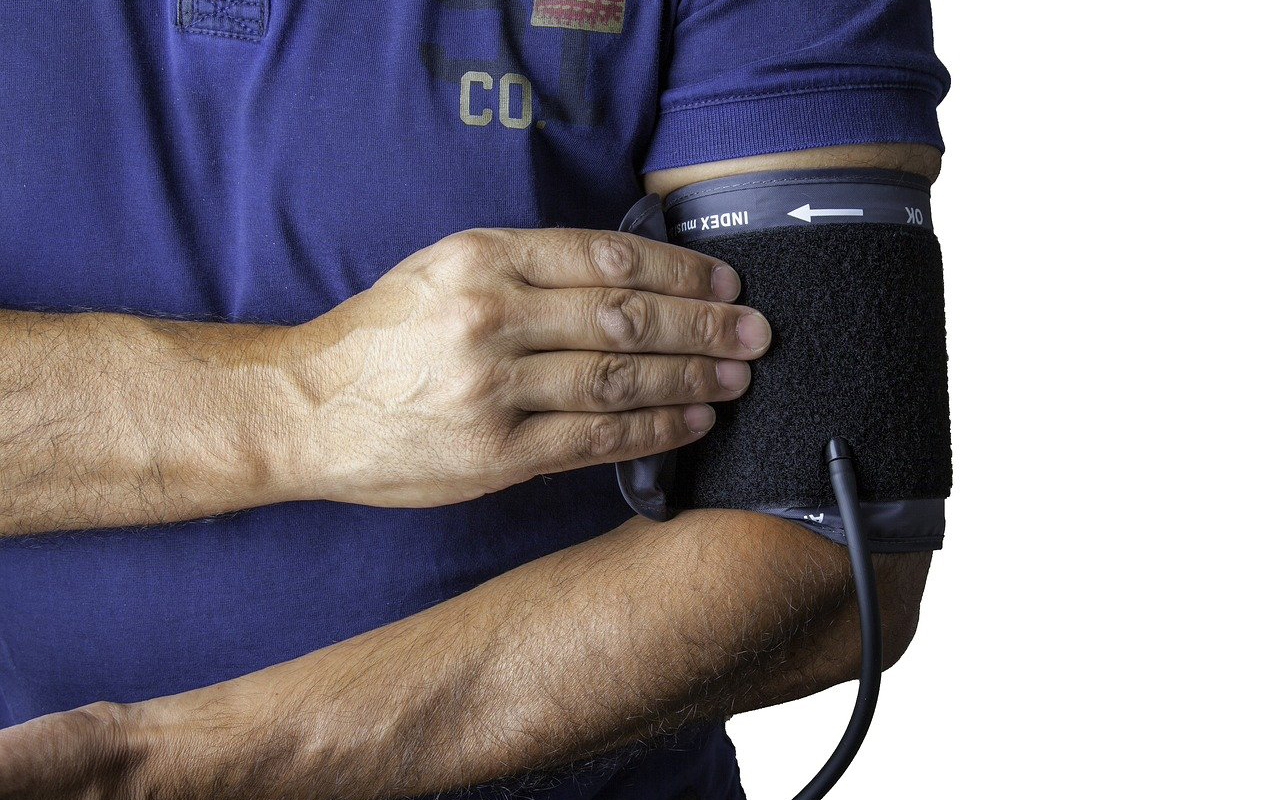
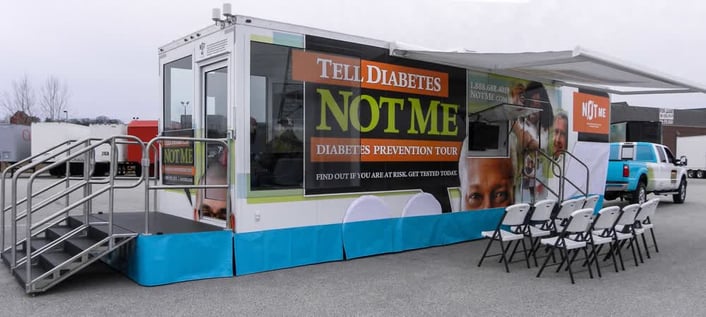
Bringing health care to the people is not a new idea. In the 1800s, the doctor nearly always came to you, not the other way around. However, with advances in medical equipment and surgical techniques, our health care system became centralized. Care providers and testing equipment are concentrated in medical office buildings and hospitals. These facilities save lives and provide necessary care for many Americans each year. However, not every American can access this care equally.
The reasons holding some individuals back from access to the best hospitals and doctors may not be what you think either. According to statistics released by the Advisory Board in 2017, the four most common reasons people cited for not seeking medical care are:
These individuals who cannot or choose not to visit the doctor for routine screenings, check-ups, immunizations, or treatment for chronic conditions, are vulnerable to the long-term effects of undiagnosed chronic illness.
We are all familiar with symptoms that develop as we come down with a cold or the flu. You feel tired and achy. Perhaps you run a fever or start sneezing. These symptoms are unmistakable clues that you are sick. Now that you know, you can take proper steps to ensure you recover as quickly as possible.
What if you got sick but didn't know it? Would you change anything about the way you live your life? Probably not, which is the challenge that we face when dealing with chronic illnesses worldwide.
Many chronic diseases are also classified as non-communicable because people cannot pass them on from one person to another. A virus or bacteria do not cause them, and often they do not cause symptoms until they have caused significant damage. These diseases include diabetes, cancer, and cardiovascular disease.
In 2010, the Pan American Health Organization estimated that over 100 million Americans had one of these diseases. Because there is no way to tell if one's blood pressure is high or your blood sugar is off without measuring it, we rely on preventative screenings to diagnose these conditions early before patients develop diabetic nerve damage or suffer a stroke. Unfortunately, millions of Americans do not have routine check-ups or screenings.
In 2017, scientists set up a mobile health clinic in a railway car in Italy. They invited study participants to have their cholesterol, blood pressure, and blood sugar checked free of charge. Their goal was to determine if providing preventative screenings in this manner would yield substantially different results from those obtained from the general population in a typical health care setting.
Their results were remarkable. They provided new diagnoses for uncontrolled chronic conditions in more than 40% of study participants, which is undeniably higher than what one would expect in the population. They also noted that the individuals that visited the clinic represented a unique socioeconomic group within the population. The mobile clinic attracted a high percentage of foreigners, men, and individuals between 50 and 69 years of age.
Furthermore, when the mobile clinic counseled these patients about dietary changes, exercise, and treatments for their conditions, they reported that 99.4% of patients adhered to the recommendations. While their study consisted only of 839 participants, it clearly highlights the benefits of mobile health care settings in diagnosing and treating chronic health conditions, which claim nearly 4 million lives each year despite being treatable and preventable.
The services offered at mobile medical facilities are not different from those offered in other settings. In fact, the care provided at these mobile sites is often a direct overlap with services available in doctor's offices and hospitals. According to the Harvard Medical School's Mobile Health Map, nearly half of all mobile medical providers offer preventative screenings such as mammograms and pap tests. So, why are they so popular?
Medical vehicles are growing in popularity because they effectively overcome the barriers keeping rural and disadvantaged individuals from seeking care in traditional settings. Because the vehicles can move from one location to another, they can reduce the travel distance for rural Americans, who may not have the time or reliable transportation to the nearest large facility. Instead, health care workers can set up at county fairs or other large gatherings to screen individuals for chronic illness.
Health care that comes to you is more flexible as well. Extended hours allow patients to visit when convenient instead of trying to schedule time off from work and coordinate childcare. It is often less intimidating as well. Most people find it more comfortable visiting someone in their hometown without venturing out of their cultural and linguistic comfort zone. These factors may also make them more likely to accept and adhere to the health advice that they receive.
The Advisory Board estimates that your return on investment into mobile health care is $12 for every dollar invested, making them a profitable way to provide healthcare to marginalized populations. The vehicle’s graphics, like vehicle wraps, can be changed and customized to advertise the specific medical services being offered. Medical vehicles can potentially change the way we approach health care by allowing us to get ahead of the problem rather than treating the symptoms. They are an investment into the health of our nation.
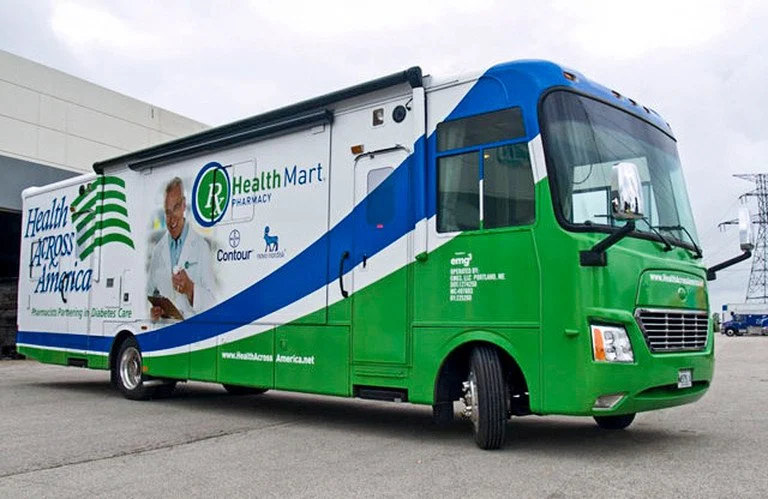
Mobile health clinics are incredibly important for filling the gaps in the healthcare infrastructure. Mobile clinics are especially beneficial for...
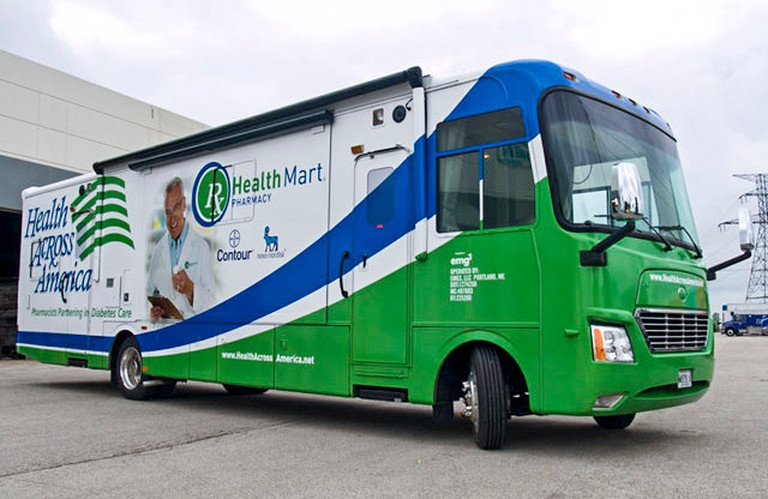
A study performed by the National Quality Forum (NQF) in 2018 revealed some startling statistics about the population in the United States. Namely,...
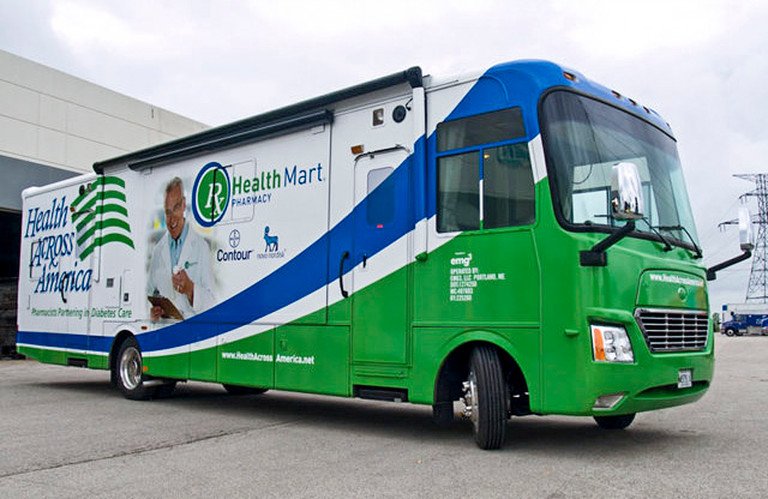
Regular mammograms are the best way to detect breast cancer early and save lives. It is now recommended that women aged 40 and over undergo mammogram...